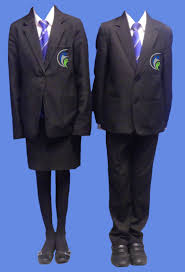uniform
英 [ˈjuː.nɪ.fɔːm]
美 [ˈjuː.nə.fɔːrm]
- adj. 统一的;一致的;相同的;均衡的;始终如一的
- n. 制服
- vt. 使穿制服;使成一样
使用频率:

中文词源
uniform 制服
uni-, 一,词源同unit,form, 形式。用于指制服。
英语词源
- uniform
-
uniform: [16] Something that is uniform has literally only ‘one form’, the same throughout. The word comes, probably via French uniforme, from Latin ūniformis, a compound adjective formed from ūnus ‘one’ and forma ‘form’. Its use as a noun, for a ‘set of identical clothes worn by everyone’, dates from the 18th century, and was inspired by French.
=> form - uniform (adj.)
- 1530s, "of one form," from Middle French uniforme (14c.), from Latin uniformis "having only one form or shape," from uni- "one" (see uni-) + forma "form" (see form (n.)). Related: Uniformly.
- uniform (n.)
- "distinctive clothes worn by one group," 1748, from French uniforme, from the adjective (see uniform (adj.)).
- uniform (v.)
- 1680s, "to make alike," from uniform (adj.). Meaning "to dress in a uniform" is from 1861. Related: Uniformed.
权威例句
- 1. Philippe was in uniform, wearing a pistol holster on his belt.
- 菲利普身着制服,腰带上别着手枪皮套。
- 2. The middle button of his uniform jacket was strained over his belly.
- 制服上装中间的纽扣在他的肚子上绷得紧紧的。
- 3. His face blanched as he looked at Sharpe's blood-drenched uniform.
- 他一看到夏普浸满鲜血的制服,脸色顿时变得煞白。
- 4. Drips of water rolled down the trousers of his uniform.
- 他的制服裤子在不停地滴水。
- 5. His uniform made him look a trifle out of place.
- 他的制服让他看起来有些格格不入。
